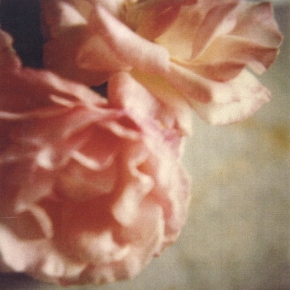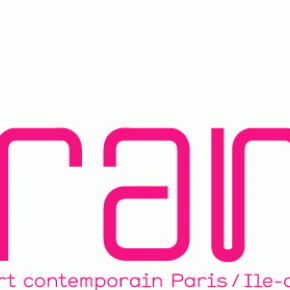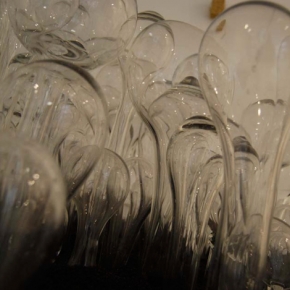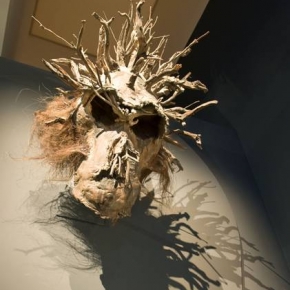



« Depuis longtemps, dans la vie et dans l’art, je suis à la recherche d’un sens plus profond de la réalité », avoue Renata Poljak. La photographe et vidéaste croate d’à peine 36 ans n’a de cesse de chercher le « bleu azur ». Comme Rohmer, hanté par le « Rayon vert ». Quête du moment où « l’on y croit », dit-elle, de la Vérité, de l’Amour. Peut-être aussi d’une paix qui l’obsède. Car l’obsède sa jeunesse passée dans les bouleversements politiques de sa région d’origine, les Balkans. Nomade depuis plus de dix ans, ancrée entre Paris et Split, de nombreuses fois primée, elle dévoile dans ses films et ses images le drame d’une histoire personnelle mêlé à celui de l’Histoire. Sur le fil du rasoir du communisme et du capitalisme en passant par la guerre civile. Et ses souvenirs se bousculent. Sa réalité se dévoile. Ses expériences se multiplient. Et cet embrouillamini magnifique de vies se déploie et se catalyse pour se métamorphoser dans ses œuvres. Bouleversantes de beauté et de pudeur. « La grande espérance » ou « Bleu azur » présentés à Paris Photo en sont deux exemples. Le premier, un court métrage, montre tout en subtilité les traumatismes vécus par trois générations de sa famille symbolisés en une image. Celle de Renata debout sur son balcon en Croatie, qui ne voit plus, dit-elle, « le paysage paradisiaque de son enfance, la mer et les îles, mais le toit de la maison neuve de son oncle enrichit par le capitalisme ». Image violente. Où se lit toute la perte des valeurs et la domination de la corruption. Mais magnifique et intense. D’où se dégage une force émotionnelle extrême. Toujours très personnel, encore plus intime, mais aussi universel, apparaît « Bleu azur ». Où dans la vidéo, chaque modulation de la couleur provoque une nouvelle émotion. Encore plus fine. Plus haute. Plus fragile. Qui se cristallise en un autoportrait pictural de Renata de dos, assise au bord d’un lac. « Dans l’attente ». Nul doute, Tacita Dean et Felix Gonzalez-Torres se sont penchés sur son épaule. Car Renata Poljak nous fait partager avec une merveilleuse et spirituelle délicatesse son analyse de notre société la plus contemporaine. Son même espace-temps. Anne Kerner
Stephan Stoyanov Gallery is pleased to announce the opening of Uncertain Memories, the first solo exhibition at the gallery by the Zagreb, Croatia- based artist Renata Poljak. The exhibition presents the artist’s works in video, photography and film made between 2007 and 2012, including here acclaimed multimedia series Staging Actors/ Staging Beliefs (2001/2012). The exhibition is curated by Zeljka Himbele.
The title of the exhibition underlines continuous thread in Renata Poljak’s work- preoccupation with how ideologies and political agendas are being formed and disseminated, and how memory and history are constructed and recorded. The artist starts with her personal experiences, often portraying contemporary society of her home country of Croatia- however, the works resonate on much wider scale.
In Staging Actors/ Staging Beliefs, the artist uses different media to investigate two iconic films of Yugoslav cinematography: Bosko Buha (1978) and Train in the Snow (1976). Through their continuous screenings both in theaters and on the national television, the communist ideology and belief in socialist system were extensively spread and influenced generations of people. Poljak examines what is currently happening to the actors who took main roles in these once popular films, and accordingly, how the Yugoslav political, social and cultural agendas transformed and mutated since the early 1990’s when Yugoslavia disintegrated and Croatia (one of the former Yugoslav States) gained its independence. The work can also be read as a general homage to all public personas, once embodying grand ideals, to be eventually forgotten and removed from collective memory.
In Poljak’s most recent work, a photograph titled Uncertain Memories: This is not me, 2012, the history of cinema is again both a resource and a motif. The artist appropriates a frozen frame from Andrei Tarkovsky’s documentary Voyage in Time (1983), made during the director’s research trip through Italy for his famous feature film Nostalgia, to contemplate on entanglement of real and fictional in her investigation of remembering and identity. Finally, the video installation Ruta and the Monument, 2007, a work conceived during Poljak’s stay in the city of Berlin, juxtaposes two videos- completely different readings of the Holocaust- in order to speak about malleability of interpretations of the past through the present.
About the Artist:
Born in 1974, Renata Poljak grew up and graduated from the School of Fine Arts in Split and later spent a year in post-graduation (international post diploma) at the Ecole Régionale des Beaux-Arts in Nantes, France. In 2002 she was a visiting artist at San Francisco Art Institute, and in 2008 she has been selected for Art In General residency program in New York. Renata’s work has been exhibited widely, through solo or group shows, biennials and film festivals. She received several awards, among them The Golden Black Box Award at the Black Box Festival in Berlin in 2006, and the T-HT award- one of the most important contemporary art awards in Croatia, in 2012. In 2010 her films were shown in Prospective Cinema (Prospectif Cinéma) in Centre Georges Pompidou, Paris. She also participated at Paris Photo 2010 exhibit at the Carrousel du Louvre, while in October 2012 a selection of her films was on view in Palais de Tokyo, Paris.
Stephan Stoyanov Gallery at, 29 Orchard Street, New York City 10002 (212) 343-4240. Jusqu’au 17/02/13.